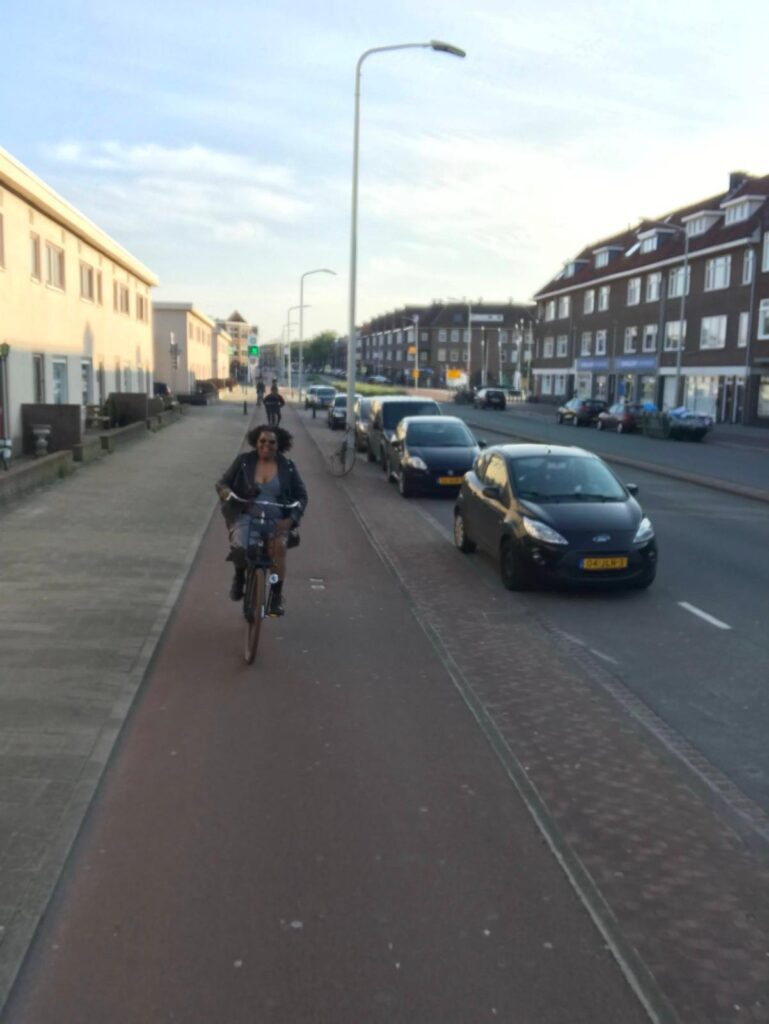7 Crucial Questions Americans Must Answer Before Moving to the Netherlands

The Identity Crisis No One Warns You About
What if finding a home within your budget was actually the second hardest thing about moving abroad?
After a decade in Europe—six years specifically in the Netherlands—I’ve realized that it’s the identity crisis that blindsides most Gen-Xers. That moment when you understand you’ve traded more than just your address—you’ve traded your entire sense of self.
In my last post, I walked through the logistics of moving to the Netherlands. But today, I want to dig deeper into the psychological preparation no one talks about.
These seven questions aren’t meant to discourage you from making the leap. Rather, they’re designed to prepare you for the emotional journey ahead—because selling your house might be simpler than rebuilding your sense of self in a new culture.
1. Can Your Housing Expectations Survive European Reality?
I used to watch House Hunters International and roll my eyes when Americans gasped at European apartment sizes and prices. “Did these people do ANY research?” I’d wonder.
The housing crisis is just as real here as elsewhere. That canal-side dream home? It might cost double what you’ve budgeted. €1800 might get you a one-bedroom with no closets, no elevator (especially in an older building) and a mini-fridge that requires grocery shopping every other day.
During Covid, we started looking for a home to buy and quickly noticed people were making blind offers—something I just couldn’t do. I needed to see the space and give myself time to ponder. We eventually found our dream home in an unexpected location but had to wait two years for construction to finish, which meant 24 months of simultaneously paying a mortgage AND rent!
Ask yourself: Are your non-negotiables realistic for the European market? What’s your Plan B or C when things don’t go as expected? Have you looked beyond Amsterdam and explored small towns and villages? If the city center in the Randstad is a priority, does your savings account match that reality?
Housing expectations are often where the expat fantasy collides with reality—and where your flexibility and checking account will be tested.
2. Can Your Ego Handle Feeling “Dumb”?
You’re smart. You’re successful. You’ve run teams and built businesses. But here, you’ll need Google Translate just to use the washing machine.
My low point? Realizing I couldn’t carry a decent Dutch conversation… with an 8-year-old. That moment almost broke me.
You’ll find yourself in situations where your intellect, education and professional accomplishments mean nothing. Where basic tasks require asking for help. Where you’re functionally illiterate when the English translation isn’t available.
Ask yourself: How well do you handle feeling incompetent? How much of your identity is wrapped up in being capable and independent?
3. Are You Ready to Let Go of American Traditions and embrace European social cues?
Thanksgiving? Just another Thursday here. Fourth of July? Not their independence.
Can you celebrate without the rituals that once anchored your year? Because your calendar will shift—and sometimes that shift feels like losing little pieces of home.
When I moved to Europe, my manager told me my German vacation allowance was 30 days. In the Netherlands, it’s about 25. My American brain immediately thought: “Will taking all these days make me look lazy? Will I get passed over for a promotion?” The short answer – “NO”!
Here’s the cultural collision: Europeans genuinely “work so they can live.” That constant American hustle mentality? It doesn’t translate—and might even damage your reputation. What feels like “dedication” in America can read as “poor work-life balance” here.
This shift sounds wonderful in theory, but when your identity has been built on productivity and proving yourself every freaking day… embracing European leisure culture can feel surprisingly uncomfortable. I know it did for me.

4. Can You Redefine Success?
As a Gen-Xer, you’ve worked hard for what you have and and enjoy showing off the fuirt of your labor with a big home, expensive car, logo down clothing. There is nothing wrong with this but now you’re moving to a place where that recognition in America—is seen as distasteful.
In the Netherlands, success is felt, not flaunted. CEOs bike to work. Millionaires shop at H&M. And starting a business isn’t about unicorns—it’s about balance and contribution.
Ask yourself: “Am I okay redefining success in a place that doesn’t celebrate it the way I’m used to?”
5. Are You Seeking Cultural Integration or Escape?
Grab a piece of paper and list three specific aspects of Dutch culture you’re genuinely excited to embrace—not just tolerate.
If you can’t name any beyond the surface level, ask yourself: if I removed all the problems I’m trying to escape in America, would moving to the Netherlands still be appealing?
Many Americans move abroad to escape something—high healthcare costs, political division, gun violence or work stress. But running from problems isn’t the same as running toward something new.
Ask yourself: What specific elements of Dutch culture call to you? What values align with yours? What traditions are you excited to adopt?
6. Can You Be Financially Steady While Emotionally Unstable?
Let’s say that you have the money part all figured out—but what about the day you’re in the supermarket and can’t find the oatmeal and you have a complete meltdown?
It’s not about the oatmeal… it’s about everything around you feeling out of place.
This move will shake your sense of control. You’ll have to get good at being uncomfortable—and staying there while you rebuild your emotional infrastructure.
Ask yourself: How do you typically handle prolonged discomfort? What coping mechanisms do you have for when nothing feels familiar?
7. If This Doesn’t Work Out, Can You Go Home Without Shame?
This journey isn’t a straight line. And leaving to go back to your home country doesn’t mean you messed up. But can your ego handle the detour?
So ask yourself: Am I brave enough to go—but just as brave to let go, if that’s what life calls for?
Your identity isn’t fixed. It’s fluid. Moving abroad doesn’t just change where you live—it changes who you become.
Final Thoughts: Geography Can’t Fix Psychology
If you’re hoping Dutch canals and bike paths will wash away American anxieties, I need you to understand this: new geography rarely solves old psychology.
These questions aren’t meant to discourage you. After a decade abroad, I’ve simply learned that preparation goes far beyond visas and housing searches.
This isn’t about whether you should go—it’s about going with your eyes fully open to both the beautiful transformation and the uncomfortable identity shift that awaits.
What specific aspect of moving abroad makes YOU most anxious? Tell me in the comments below and I might address it in a future post!
Remember, this is not a midlife crisis—it’s your ultimate plot twist.
Want to see more content like this? Subscribe to my YouTube channel and follow along as we keep Enjoying the Journey.